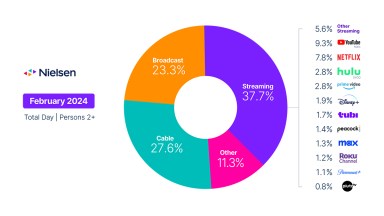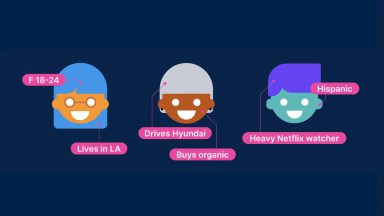It is a boom time for emerging media, and marketers are gravitating to advertising avenues like podcasts, branded content and social influencer marketing to keep pace with growing audiences and connect with new ones.
For the past two years, Nielsen Annual Marketing Report global surveys show that as marketers continue to grow their ad spend across digital channels, podcasts, social media and native advertising attract the biggest increases. The Interactive Advertising Bureau (IAB) forecasts that podcast advertising will exceed $4 billion by 2024. eMarketer predicts that U.S. marketers will spend $7 billion on influencer marketing in 2024, up from $5 billion in 2022.
It makes sense. These channels provide the potential to deliver huge impact with smaller spend when compared to traditional media—an appealing proposition at any time, but particularly now as budgets get stretched against the backdrop of global economic uncertainty. With the perfect podcast spot, your brand can feel like a vetted solution to its hyper-targeted audience of food-obsessed entrepreneurs looking for an easier way to ship their new small-batch hot sauce. Of course, the devil is in the details.
In our 2023 Brand Lift Drivers report, we shared research on tailoring emerging media creative to get more value. The next piece of the puzzle is ensuring your measurement strategy captures the complete picture of performance.
While we’re no longer in the wild west days of influencer, sponsored content or podcast advertising, they are still relatively new channels. And with new terrain comes uncertainty. Historically, emerging media have had clear metrics for proving engagement and even conversion; brand-building measurement, however, has been more elusive.
As these channels continue to solidify as key components of your marketing mix, it will be important to understand their impacts on the entire funnel. And that means nailing measurement for brand lift.
The blockers for effective brand lift measurement
There are a few factors at play that make brand-building measurement hard for new and emerging media channels.
- Channel inconsistencies
Podcasts, branded content and influencer marketing all have their own distinct set of metrics that, more often than not, don’t translate across channels. Views aren’t the same as listens, which aren’t the same as clicks. This makes it that much harder to get a 30,000-foot view of success as everything gets brought down to the channel level. - Siloed analysis
Spending enough money with a single publisher or platform can unlock access to one-off brand lift studies. While helpful, these studies only capture what occurred within the confines of the vendor’s channel. That leaves you having to string together a series of ad hoc studies to create a patchwork view of performance. - Limited research
While there are readily available industry benchmarks and best practices for established media channels, many working in emerging media are still flying blind. Nielsen’s research into brand lift factors for emerging media fills some of that knowledge gap. Still, the need—and expectation—for rigorous brand lift measurement in these channels will continue to grow as they prove durable marketing levers.
The payoff of prioritizing upper-funnel insights
The potential impact unlocked when you nail measurement for brand-building goals is huge, particularly for emerging media.
Brand building wins deliver sales ROI
It’s been shown time and time again that investing in upper-funnel, brand-building goals drives lower-funnel returns. The 2021 Nielsen Brand Resonance Report found that increasing awareness and consideration by one point drives a 1% increase in future sales. And in 2022, we discovered that increasing awareness and consideration by 1% can also decrease short-term cost per acquisition by 1%.
Investment at the top of the funnel is an investment for the full funnel.
A universal metric reveals comprehensive performance
To combat the complexities of each channel having its own set of performance metrics, look to a KPI that already works across all: Brand lift. This is a doubly helpful metric for those interested in emerging media spaces as they are particularly good at delivering on brand-building objectives.
For podcast ads, branded content and influencer marketing, the average aided brand recall is over 70%, and the average brand sees gains in familiarity and affinity with the exposure.
Emerging media can drive 70%+ aided brand recall after ad exposure
| Average: | Podcast Ads | Influencer Marketing | Branded Content |
|---|---|---|---|
| Aided Recall | 71% | 79% | 81% |
| Familiarity Gain | +3 points | +5 points | +5 points |
| Affinity Gain | +6 points | +9 points | +9 points |
Source: Nielsen Brand Impact Norms January 2023
Consistency drives clarity
You’re potentially missing out on a compelling performance story when you don’t track brand lift in a consistent way across platforms. It’s critical to understand, and quantify, the link between brand-building work and sales returns. What’s more, without consistent, holistic measurement, you may also lose out on insights into which investments are working and what’s missing the mark—no matter how new the channel is.
Eventually, emerging media becomes established media and a new class of channels crops up. It’s the circle of marketing life. That means marketers should prioritize understanding the full-funnel impacts of these emerging channels, and those that come after, to remain agile and ready to drive as much impact as possible.



